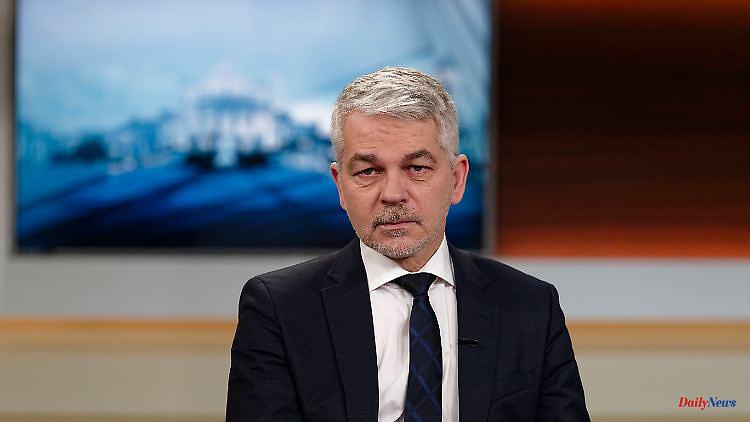The requests and demands of the Ukraine have been heard: The attacked country will get battle tanks from Germany and other countries, that was confirmed last week. Anne Will would like to know from her guests whether the delivery will be late - and what might happen afterwards.
It took a very long time before Chancellor Olaf Scholz justified the delivery of Leopard 2 main battle tanks to Ukraine in the Bundestag on Wednesday last week: They had acted together with the allies. The US had also promised to supply tanks to Ukraine.
Scholz had been heavily criticized for his decision in the past few days. He had hesitated for too long, Germany's reputation with Western partners had suffered, it said. Georg Mascolo, author at the "Süddeutsche Zeitung", cannot understand this criticism. With Anne Will on ARD, the journalist says that the Chancellor's approach was to deliver weapons, but not without the Americans. But US President Joe Biden also hesitated with a corresponding decision. "Then Scholz does something unusual: he puts pressure on the Americans - and gets them to revise their decision." Ultimately, that's how the delivery came about. However, Mascolo believes too much time has been wasted in the discussion.
Military expert Carlo Masala criticizes the damage caused by the chancellor's hesitation, especially with regard to Poland and the Baltic states. In addition, it was wrong that the Chancellor did not allow deliveries of Leopard 2 tanks by other countries.
SPD General Secretary Kevin Kühnert defends the Chancellor. That is also his job. In recent months, Scholz has always made it clear what the parameters are that he bases his decisions on: "He has repeatedly referred to the fact that NATO and Germany must not become a party to the war, that we must maintain our own defense readiness and that we don't isolate ourselves among our partners, but always act in concert." In this context, the arms deliveries to Ukraine were further developed. Now the demand is that "the chancellor should always give water level reports from time to time, because otherwise you can't look inside his head. But does that make you more willing to make decisions?" It is unnecessary to warn them anyway, because Germany has delivered material worth more than three billion euros to Ukraine, putting it in second place together with Great Britain and behind the USA.
In the eyes of German-Ukrainian publicist Marina Weisband, German arms deliveries usually come too late. The now promised deliveries of 80 main battle tanks are a drop in the bucket. "Ukraine is kept on a drip. They get too much to die for but not enough to live on." But it is important to end the war in Ukraine as quickly as possible. And that, in their opinion, is not what the US and Germany want. "I would even like to say that the goal is that Ukraine does not lose, but that the war lasts as long as possible, perhaps to weaken Russia." However, if Germany wanted a quick end to the war, as many weapons as needed would have to be delivered as quickly as possible.
Left Chairwoman Janine Wissler also wants the war to end quickly, but not through further arms deliveries. She relies on negotiations, also with third countries such as China or India. She would also like talks on individual points such as a grain agreement in order to prepare for peace negotiations.
Mascolo agrees, at least in theory. "But I wouldn't know what to negotiate at the moment," he says. Nevertheless, one has to state that the Russian President Putin has failed again. Putin had hoped for a winter of anger and that the western alliance would crumble, and that did not happen. "Now the hope is that at some point Putin will realize that he cannot claim victory on this battlefield. But I fear that he is ready to go on like this for a very long time."
Military expert Masala believes so too. That's why he points out a crucial point when it comes to weapons deliveries: It's not enough to just deliver the systems, you also have to think about the ammunition.
Kevin Kühnert agrees with him: "We also have to think about the soldiers who are wondering what else they can use to do their job. It's not like we're talking about full camps here. And when we're talking about airplanes now, then we talk about chimeras, because the ammunition situation is even more precarious here than in other places."












